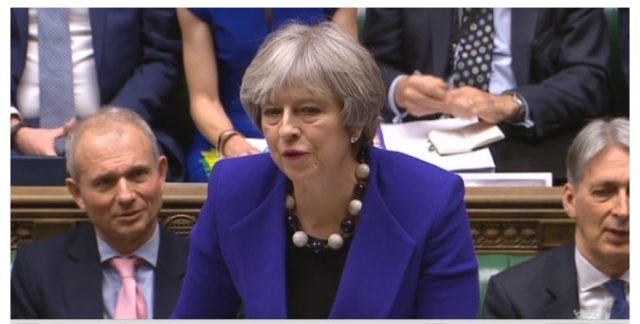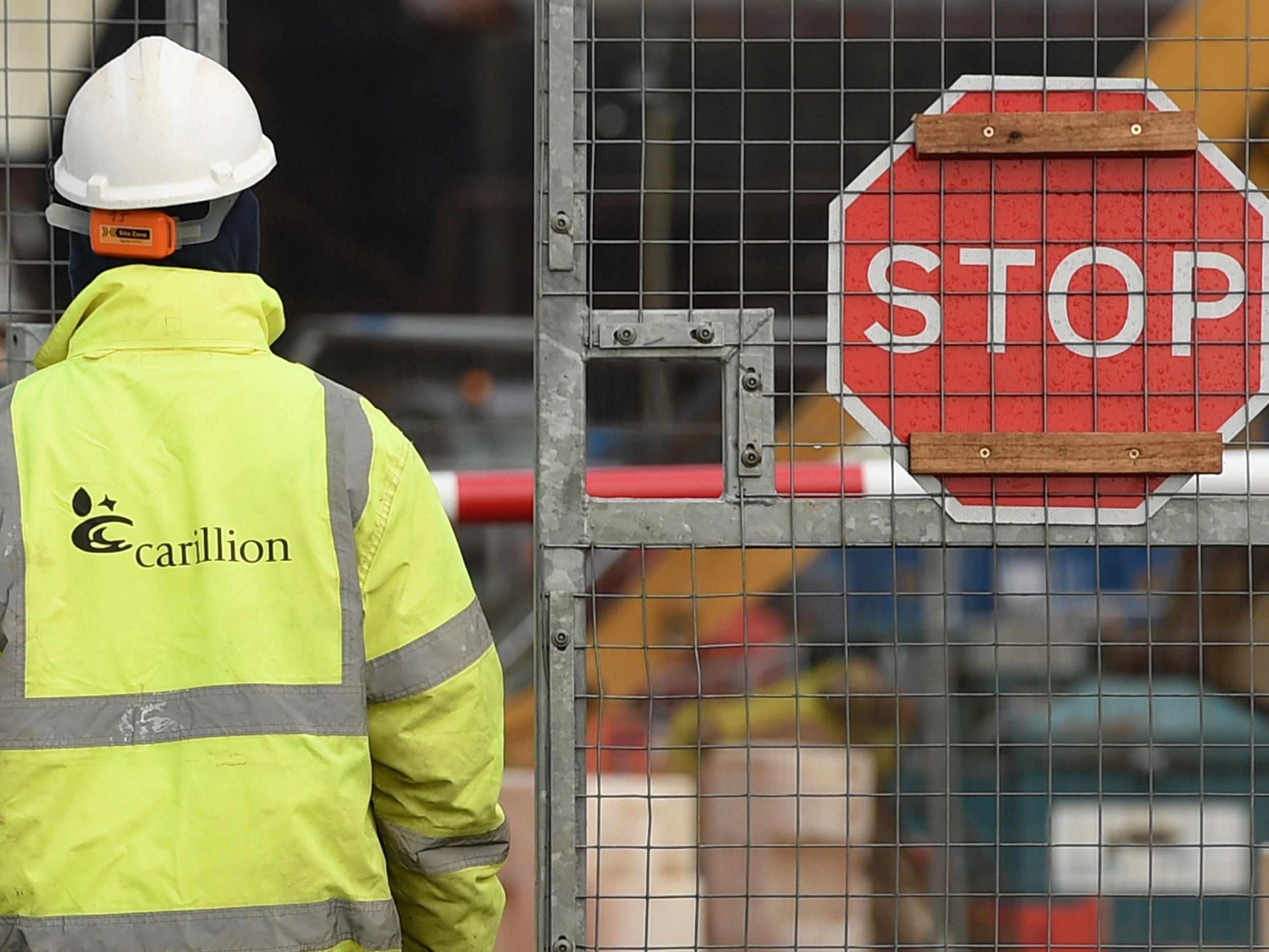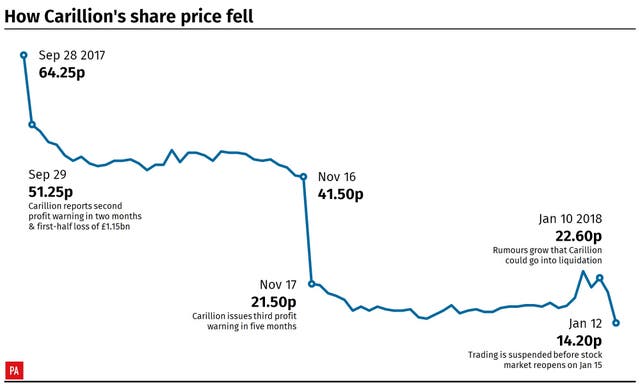
Workers on most private sector contracts held by failed construction company Carillion will continue to be paid, while bonus payments to directors and former executives have been stopped.
The developments came as the Government urged banks to deal “swiftly and sympathetically” with small firms caught up in the crisis.
Unions reported cases of workers being laid off across the country as a number of construction projects were stopped, with no certainty over when work would restart.
The Insolvency Service said 90% of Carillion’s private customers have indicated they want it to carry on providing services until new suppliers can be found and will provide funding to keep employees on.
The Service also revealed that payments, including those included in severance packages for former executives, had been halted after the firm went into liquidation on Monday.
A spokesman said: “Any bonus payment to directors, beyond the liquidation date, have been stopped and this includes the severance payments which were being paid to some senior executives who left the company.”
At Prime Minister’s Questions, Labour leader Jeremy Corbyn lashed out at the “wildly excessive” bonuses paid to directors.
The company’s interim chief executive has revealed that Carillion had just £29 million in cash by the time it went bust, at a time when it was struggling under £900 million of debt and a £587 million pension deficit.

Mr Corbyn said the large salaries and bonuses paid to Carillion executives while the future of its 20,000 employees were put at risk showed there was “one rule for the super-rich, another for everybody else”.
In fiery exchanges, Mr Corbyn called on the Prime Minister to end the “costly racket” of contracting out public services to private businesses.
“These corporations need to be shown the door. We need our public services provided by public employees with a public service ethos and a strong public oversight.”
Carillion is not one isolated case of government negligence and corporate failure. It represents a broken system. #PMQs pic.twitter.com/ZwKlYmd7Cp
— Jeremy Corbyn (@jeremycorbyn) January 17, 2018
Mrs May retorted: “We’re making sure in this case that public services continue to be provided, that workers in those public services are supported and taxpayers are protected.
“But what Labour oppose isn’t just a role for private companies in public services, it’s the private sector as a whole.”
The Official Receiver has powers to recover any “unlawful or unjustified” payments made to Carillion executives, she said.
A spokesman for the Insolvency Service said all of these companies had been contacted over the past 48 hours, adding: “Over 90% of these customers have indicated that they want Carillion to continue providing services in the interim until new suppliers can be found and will provide funding which enables the Official Receiver to retain the employees working on those contracts.
“Work has paused on construction sites, pending decisions as to how and if they will be restarted.”

Business Secretary Greg Clark met high street banks to urge support for small businesses.
“I chaired a meeting this morning of high street banks to ensure that they are in contact with customers impacted, that they have in place the advice and support needed and that any individual cases are escalated and dealt with sympathetically, swiftly and appropriately,” he said.
Unite leader Len McCluskey said the Government had a “moral duty” to provide direct financial assistance to sub-contractors and suppliers.
In High Court papers seen by the Press Association, Carillion’s interim chief executive Keith Cochrane revealed the company made a “formal request” for support from the Government on December 31 following talks during the final months of 2017.
Up until as recently as Sunday, directors believed a “constructive dialogue regarding short-term funding” was under way in order to rescue the company, he said.
However, while discussions were ongoing, Mr Cochrane accused the Royal Bank of Scotland (RBS) of taking “unilateral action which in the company’s view undermined the group’s efforts to conserve cash”.
He said the RBS asked for certain bank payments to be pre-paid, which had a negative impact on the company’s liquidity by between £2 million and £20 million.
Two days later, on January 14, the Government denied the company’s final request for help which led directors to conclude it was insolvent.



Comments: Our rules
We want our comments to be a lively and valuable part of our community - a place where readers can debate and engage with the most important local issues. The ability to comment on our stories is a privilege, not a right, however, and that privilege may be withdrawn if it is abused or misused.
Please report any comments that break our rules.
Read the rules here